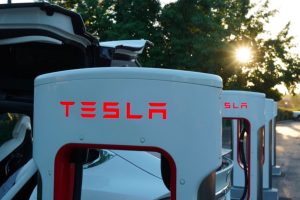Key Points
- 🕵️♂️ Elon Musk is under investigation by the DOJ for CEO benefits he received from Tesla and potential lack of proper disclosure.
- 🏠 The investigation includes benefits related to a project to build a house for Musk.
- ⚖️ Federal prosecutors are looking into the disclosure and use of company resources for personal benefits, and criminal charges could be a possibility.
- 📜 The SEC is conducting a separate civil investigation into allegations related to the house project and executive perks disclosure.
- 💰 Companies are required to disclose executive perks if they exceed $10,000, including housing, and transactions over $120,000 involving executive officers with a material interest.
- 🤖 The house project, known as “Project 42,” was initially secret within the company and faced scrutiny over its use of funds for glass panels.
- 📈 Musk’s denial of plans to build a glass house or any house has been posted on social media.
- 🏦 The investigation also involves transactions between Tesla and entities connected to Musk.
- 💡 Public concern about executive perks may be driving regulatory scrutiny in this area.
Elon Musk is under investigation over CEO benefits received from Tesla and whether they were properly disclosed. According to a new report, the perks may date back further than investigators previously realized, and broadened interest from federal prosecutors appears to signal the pursuit of potential criminal charges.
Federal prosecutors are conducting an investigation of Musk and Tesla over the disclosure and use of company resources for various personal benefits, including a project to build a house for the CEO, according to a report from The Wall Street Journal. Musk is under investigation from the U.S. Department of Justice (DOJ) over the Tesla benefits, which may date back as far as 2017. Additionally, criminal charges could be on the table.
The WSJ says it spoke with “an array of people” about Tesla and the government investigations for this report.
According to people familiar with the matter, the U.S. Attorney’s Office for the Southern District of New York has also been investigating Musk for transactions made between Tesla and other entities connected to him. Prosecutors on the case have alluded to potential involvement from a grand jury, the WSJ reports.
In addition, a separate civil investigation has been opened into allegations of the house project for Musk by the Securities and Exchange Commission (SEC). The housing plans were internally dubbed “Project 42,” set to construct a large glass building near Tesla’s Gigafactory Texas.
The SEC requires publicly traded companies to disclose executive perks and benefits if their total exceeds $10,000, including reimbursement for private security, housing or airplane use. Companies are also required to disclose transactions over $120,000 in which executive officers have a material interest.
Notably, Musk posted last year about wanting to build himself a home on a nearby horse farm on the other side of the Colorado River from Giga Texas. He met with an architect to talk designs and even suggested utilizing a glass shard coming out of a lake, according to Walter Isaacson’s recent biography of the billionaire. Ultimately, Isaacson says Musk just “put off building it.”
Project 42 and its purpose were considered a secret within the company, the WSJ explains.
When employees became worried about the use of millions of dollars in glass panels ordered by Tesla, lawyers and board members began scrutinizing the project. One such concerned party reportedly included former CFO Zachary Kirkhorn, who stepped down last month but will remain through the end of the year.
Earlier this month, Musk denied claims of his plans to have Tesla build a glass house or any house in a post on X, and he and his representatives didn’t respond to the WSJ’s requests for comment.
“Companies have been paying attention to the SEC’s enforcement efforts and tightening their controls in this area, which is likely resulting in changes to perks or increased disclosures,” says Sidley Austin lawyer and regulatory enforcement group leader Stephen L. Cohen. “But I believe there is also a view at the SEC that the public cares about executive perks.”





